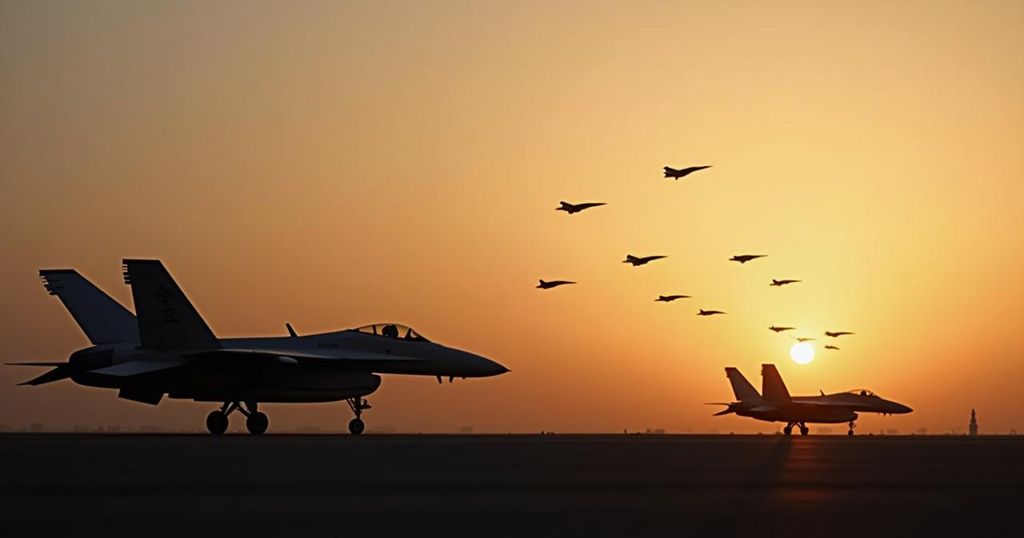U.S. Navy Intercepts Iranian Missiles Targeting Israel with Jordanian Support

On October 1, 2024, the U.S. Navy shot down Iranian missiles targeting Israel with the approval of Jordan, which allowed the operation to take place within its airspace. Two U.S. Navy destroyers were involved in intercepting the missiles. The U.S. has called for global condemnation of Iran’s actions.
On October 1, 2024, a significant military engagement unfolded as the United States Navy intercepted and destroyed Iranian missiles targeting Israel. This operation was conducted with the full permission of Jordan, which authorized the U.S. to utilize its airspace to neutralize threats posed by missiles originating from Iran. A senior Jordanian official confirmed that Jordan will extend this cooperation to any missile traversing its airspace. According to officials from the Pentagon, two U.S. Navy destroyers engaged the Iranian missiles, launching approximately a dozen interceptors to ensure the safety of Israeli territory. Major General Patrick Ryder, a spokesperson for the Pentagon, emphasized that the operation solely involved naval assets, with no additional U.S. military resources utilized for this defensive action. This incident has elicited strong international reactions, with the U.S. calling on all nations to jointly condemn Iran’s aggression against Israel, which was described as a notable escalation in regional tensions. Throughout the day, various developments unfolded, including Israel’s Defense Forces (IDF) taking actions to secure their borders and responding to potential threats.
The recent missile attack by Iran toward Israel marks an alarming escalation in hostilities within the Middle East. The U.S. military’s involvement, particularly under the auspices of Jordanian cooperation, underscores the strategic military alliances in the region and the increasing threat posed by Iranian military capabilities. Jordan’s decision to permit U.S. actions within its airspace reveals the broader implications of its security policies and its relationship with the United States in combating regional threats. This incident highlights the volatility of the Middle Eastern geopolitical environment and raises concerns among international observers regarding stability and safety in the region.
In conclusion, the U.S. Navy’s successful interception of Iranian missiles aimed at Israel, with the explicit support of Jordan, exemplifies a coordinated effort to counteract expected threats in a rapidly evolving geopolitical landscape. This operation not only showcases the defensive capabilities of the U.S. military but also emphasizes the solidarity among nations committed to regional stability and security in the face of Iranian aggression. The international community’s response will likely determine the future course of actions in this complex conflict.
Original Source: www.jpost.com






